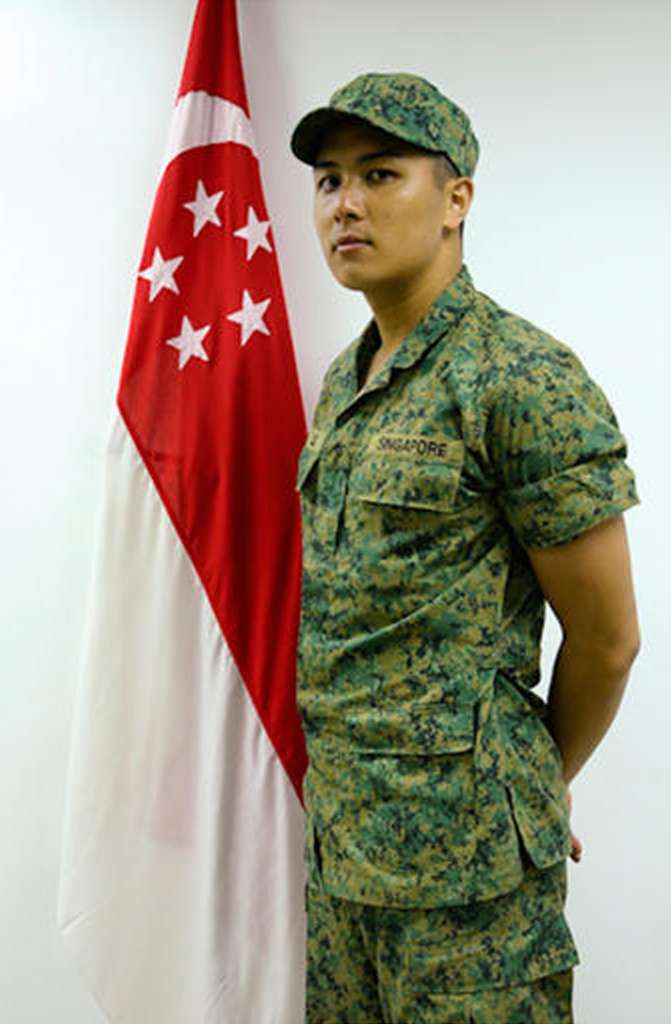Parliament: Officers punished by setbacks in careers, fines, over NSF Dominique Sarron Lee's death: Ng Eng Hen
Sign up now: Get ST's newsletters delivered to your inbox

The late Private Dominique Sarron Lee passed away in April 2012 during a training exercise after suffering an allergic reaction to zinc chloride fumes from smoke grenades.
PHOTO: MINDEF
SINGAPORE - The two Singapore Armed Forces officers involved in the training incident which led to Private Dominique Sarron Lee's death suffered setbacks in their career when they were punished.
Their promotion was delayed amounting to a monetary loss to them of about half of their total annual salaries, and they were also fined.
Defence Minister Ng Eng Hen on Thursday disclosed these details about the punishment meted out on the two officers, as he set out the SAF's approach to training incidents that result in injury or death of servicemen.
He was responding to a parliamentary question by Non-Constituency MP Dennis Tan who wanted to know how Captain Najib Hanuk Muhamad Jalal and Major Chia Thye Siong were punished.
The late Pte Lee had died after suffering an allergic reaction to fumes from smoke grenades in a 2012 training exercise.
Ng said SAF servicemen can be, and have been charged and punished in the criminal courts for acts committed in the course of their duties.
But in this case, the Attorney-General decided not to prosecute the two officers as the Coroner had found they were not reckless or negligent, he said.
They were then charged under military law in November 2013 for breaching training safety regulations, and punished with fines and delays in promotion.
"Both officers have suffered a setback in their careers. The monetary cost of the promotion delays is significant, amounting to about half of their total annual salaries," said Dr Ng.
He added that the punishment was consistent with that meted out in similar cases.
"If there were sufficient grounds to deem the servicemen criminally liable for Pte Lee's death, they would have been prosecuted in the criminal courts, as the AGC had done in previous cases," he said citing several cases where SAF personnel have been fined and jailed.
Mr Ng also made clear that the prosecutions of SAF servicemen in civilian criminal courts are determined by "judicial processes outside the SAF, namely, the Coroner's findings of the factual cause of death, and the AGC who decides if there are sufficient grounds to prosecute servicemen".
"The SAF fully accepts these judicial processes and indeed deems them necessary so that our SAF servicemen are held accountable for their actions," he said, adding that these processes were applied in Pte Lee's case.
During the open hearing on the Coroner's inquiry, said Dr Ng, the family of Pte Lee and their lawyer were present and were allowed to pose questions, including to the two officers.
The AGC did not prosecute anyone as the Coroner had determined that Pte Lee's death was due to an unforeseen allergic reaction to zinc chloride that was unlikely to have been predicted, he said.
The Coroner had also said it "could not be definitive whether in the deceased's case the reaction was due to the inhalation of excessive fumes or the mere inhalation of fumes".
Dr Ng also said that there is no reliable test recommended by health experts to diagnose allergy to zinc chloride.
He added that an allergy to zinc chloride from smoke grenades is known but rare, which is why militaries in many countries, including the United States and South Korea, still use them .
Pte Lee's death from the allergy was the first recorded case in Singapore after more than 30 years of regular use of the smoke grenades, he said.
Even though there is no safety requirement internationally that prevents the use of smoke grenades that release zinc chloride fumes, the SAF switched to alternatives in March 2014 following a safety review of Pte Lee's case, he added.
He also said it would be wrong and unfair to punish SAF servicemen beyond the level of the offence they have committed which has been determined by independent and impartial judicial processes.
Describing Pte Lee's death as a sad and tragic incident that he and the SAF felt very sad about, he said: "Every injury or death to one of our servicemen is an occasion marked by sadness and regret for the whole SAF family. Our SAF commanders know that the sons of families entrusted to them during NS are precious."
He added: "This is a tragic loss of life, unexpected and unintended. The two SAF officers involved will carry with them the pain of this incident for the rest of their lives. But I do not believe that they started that fateful day intending at all to harm the soldiers under their charge."


